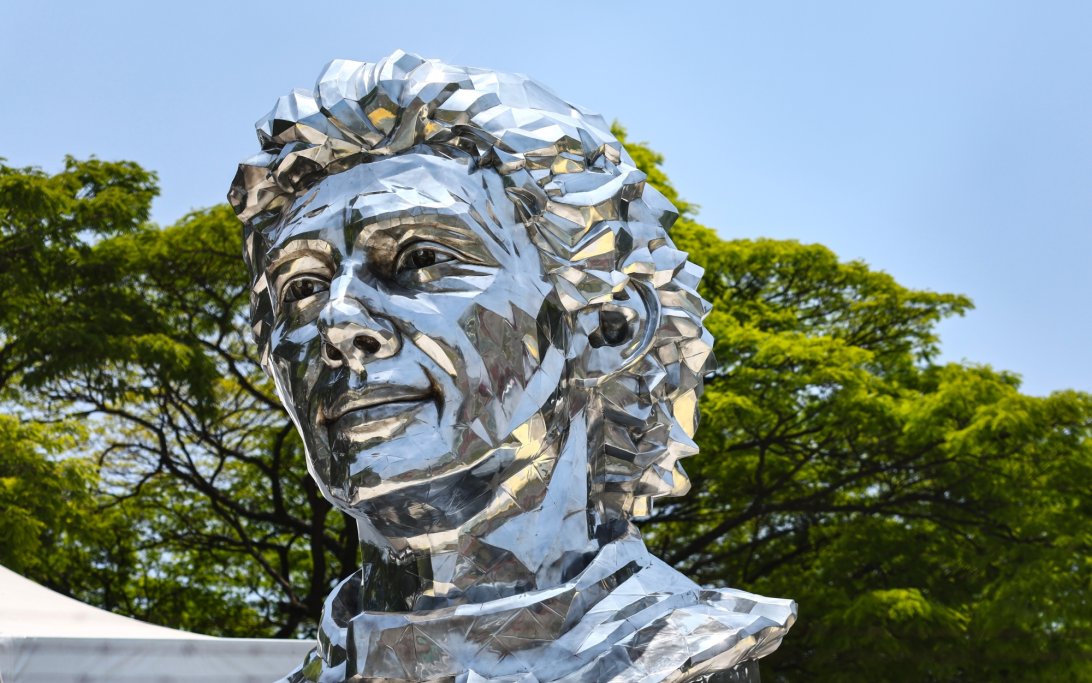Fatal accidents in Formula 1
Over the years, as many as fifty F1 drivers died in harness. Thanks to increased safety in Formula One, the number of tragic accidents decreased significantly over the years. Jules Bianchi was the last Formula One driver to die as a result of an accident. The list below includes all drivers who died during or after an accident in a Formula 1 car during race weekends, training sessions and other events.

A total of 50 drivers have died as a result of such accidents until 2023: 28 during Formula One Grand Prix events, 7 during the Indianapolis 500 (during the time it was still part of the F1 World Championship), 9 during test sessions and 6 during events not related to a world championship.
15 drivers died in the 1950s, 14 in the 1960s, 13 in the 1970s, 4 in the 1980s, 2 in the 1990s and 2 in the 21st century as well. The largest number of deceased drivers came from the United Kingdom. Twelve British drivers died in a Formula One car. The track where the most accidents occurred was the Indianapolis Motor Speedway, where seven drivers died during the Indianapolis 500, which was still part of the world championship in the 1950s. Only one driver became world champion posthumously: Jochen Rindt in 1970, who died during a qualifying session. One former world champion died during a race: Ayrton Senna in 1994.
Fatal accidents in F1
| Driver | Date of accident | Location |
|---|---|---|
| Cameron Earl | 18 June 1952 | MIRA Test Circuit |
| Chet Miller | 15 May 1953 | Indianapolis Motor Speedway |
| Charles de Tornaco | 18 September 1953 | Autodromo Modena |
| Onofre Marimón | 31 June 1954 | Nürburgring |
| Mario Alborghetti | 11 April 1955 | Circuit de Pau |
| Manny Ayulo | 16 May 1955 | Indianapolis Motor Speedway |
| Bill Vukovich | 30 May 1955 | Indianapolis Motor Speedway |
| Eugenio Castellotti | 14 March 1957 | Autodromo Modena |
| Keith Andrews | 15 May 1957 | Indianapolis Motor Speedway |
| Pat O'Connor | 30 May 1958 | Indianapolis Motor Speedway |
| Luigi Musso | 6 July 1958 | Reims-Gueux |
| Peter Collins | 3 August 1958 | Nürburgring |
| Stuart Lewis-Evans | 19 September 1958 | Ain-Diab Circuit |
| Jerry Unser | 17 May 1959 | Indianapolis Motor Speedway |
| Bob Cortner | 19 May 1959 | Indianapolis Motor Speedway |
| Harry Schell | 13 May 1960 | Silverstone Circuit |
| Chris Bristow | 19 June 1960 | Circuit de Spa-Francorchamps |
| Alan Stacey | 19 June 1960 | Circuit de Spa-Francorchamps |
| Shane Summers | 1 June 1961 | Brands Hatch |
| Giulio Cabianca | 15 June 1961 | Modena |
| Wolfgang von Trips | 10 September 1961 | Autodromo Nazionale Monza |
| Ricardo Rodríguez | 1 November 1962 | Autódromo Hermanos Rodríguez |
| Gary Hocking | 21 December 1962 | Westmead Circuit |
| Carel Godin de Beaufort | 2 August 1964 | Nürburgring |
| John Taylor | 7 August 1966 | Nürburgring |
| Lorenzo Bandini | 7 May 1967 | Circuit de Monaco |
| Bob Anderson | 14 August 1967 | Silverstone Circuit |
| Jo Schlesser | 7 July 1968 | Rouen-Les-Essarts |
| Gerhard Mitter | 2 August 1969 | Nürburgring |
| Martin Brain | 25 May 1970 | Silverstone Circuit |
| Piers Courage | 7 June 1970 | Circuit Zandvoort |
| Karl-Jochen Rindt | 5 September 1970 | Autodromo Nazionale Monza |
| Jo Siffert | 24 October 1971 | Brands Hatch |
| Roger Williamson | 29 July 1973 | Circuit Zandvoort |
| François Cevert | 6 October 1973 | Watkins Glen Grand Prix Race Course |
| Peter Revson | 30 March 1974 | Kyalami |
| Helmuth König | 6 October 1974 | Watkins Glen Grand Prix Race Course |
| Mark Donohue | 19 August 1975 | Österreichring (Red Bull Ring) |
| Tom Pryce | 5 March 1977 | Kyalami |
| Brian McGuire | 29 August 1977 | Brands Hatch |
| Ronnie Peterson | 11 September 1978 | Autodromo Nazionale Monza |
| Patrick Depailler | 1 August 1980 | Hockenheimring |
| Gilles Villeneuve | 8 May 1982 | Circuit Zolder |
| Riccardo Paletti | 13 June 1982 | Circuit Gilles Villeneuve |
| Elio de Angelis | 15 May 1986 | Circuit Paul Ricard |
| Roland Ratzenberger | 30 April 1994 | Autodromo Enzo e Dino Ferrari |
| María de Villota | 3 July 2012 | Duxford Airfield |
| Jules Bianchi | 5 October 2014 | Suzuka Circuit |
Safety first
Since its birth in the middle of the last century, Formula 1 has become progressively safer. This led to a reduction in the number of fatal accidents within the sport. A recent addition within F1 is cockpit protection called HALO. After Jules Bianchi's accident in 2014, they started developing such a system. The HALO has since proven its track record on several occasions, including during the 2020 Bahrain Grand Prix, when the innovative piece of technology saved the life of Romain Grosjean.
Don't miss out on any of the Formula 1 action thanks to this handy 2026 F1 calendar that can be easily loaded into your smartphone or PC.
Download the calender